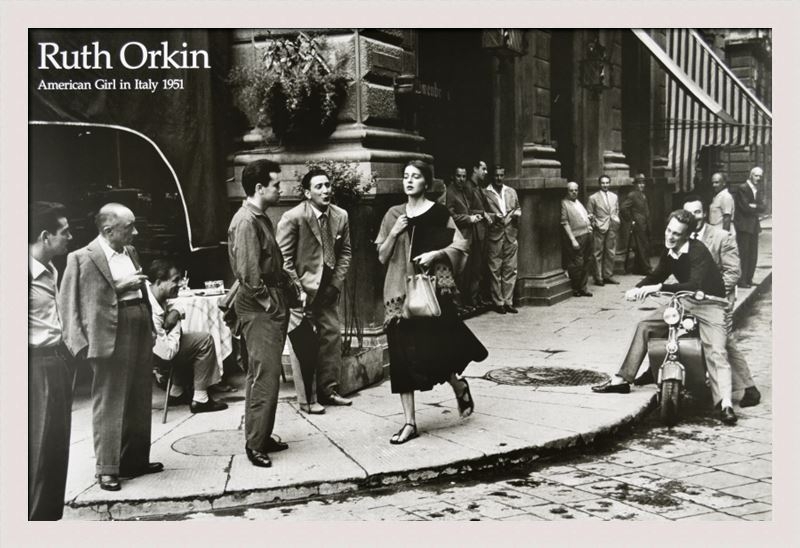Recently asked on the Fodor’s travel forum: “We’ve been told it is customary and acceptable for men in Italy to pinch women’s bottoms. Is this true and, if it is, what is the customary and acceptable response?”
Over the years I’ve lived in Italy I’ve been asked this question several times. And it always makes me laugh because, while it may once have been normal behavior for Italian men, I experienced this kind of thing far more in India (where it’s called “eve teasing”) than I ever have in Italy.
When I was a teenager in India in the late 70s/early 80s, foreign women were considered “easy” and therefore worth a try (verbal or physical), though Indian women out alone were also harassed. I don’t understand what drives men to do this. How stupid do you have to be to believe that some woman whose bottom you grab or to whom you say “Hey, sexy baby” is going to swoon into your arms?
By the end of my high school years in India I had been groped and “hello darling’d” enough to know how to avoid it (as far as that was possible). When I returned for a college year abroad in Benares, I was surprised to find myself the only woman in our group who was never bothered at all. In retrospect, I think I went around that year with such a forbidding expression that no one dared come near me. (I am also taller and heavier than many Benarsi men, which may have scared them off.)
I didn’t know much about Italy when I first began travelling here, so it never occurred to me to expect such. (I was always accompanied by Enrico in any case.) And, in all these years, it’s never happened. Except once, riding in a very crowded bus in Rome, I got groped. If I could have identified the culprit I would have slapped him, but of course these slimeballs judge their situations very carefully, and I didn’t want to slap the wrong man.
An Italian colleague tells me that she’s been groped a few times in the metro in Milan. It’s called palpeggiamento, and the favored technique is the mano morta – the “dead hand” left dangling where it will brush up against something, but the culprit can claim innocence if confronted.
My colleague’s response is to step back hard onto the guy’s foot with her sharp high heel, then turn around and say sweetly, “Did I step on you? I’m soooo sorry.” This or something similar would be the response of most Italian women – who do NOT consider being fondled by strangers to be expected or tolerable behavior!
Someone else in the Fodor’s forum said that her daughter, on a study abroad year in Florence, had been warned by her university to expect verbal and physical harassment, and that the best response was simply to ignore it. She duly was hassled, and, as instructed, ignored it.
It seems to me that the administrators of these college programs are encouraging bad behavior by instructing their students to put up with it, when no one else in Italy would, and the girls themselves would not tolerate such treatment back home. So the Florentines obligingly perpetuate their grandfathers’ myth of the butt-pinching, wolf-whistling Italian man. (Perhaps if we pointed out to these young men how desperately old-fashioned this is, they would be embarrassed into stopping.)
Then there are the American women tourists who, having heard all the stories, claim to feel disappointed if they don’t get grabbed in the street – they feel they’ve missed out on a quintessential Italian experience. Umm, well, the guy who pinches your bottom is surely not one you would actually want to have sex with – it’s not exactly a smooth approach, is it? Wait for the one who hands you a good line and buys you a good dinner. Quite a few tourists have had a great vacation this way, and some have even ended up married!
(On the other hand, don’t be surprised or shocked to learn that he’s already married. Adultery is something of a national sport, and what could be easier or safer than a fling with a woman who will soon be leaving?)
Some Italian terms for seduction can be found here (along with a lot of very rude words).
So… ever been pinched in Italy?
















